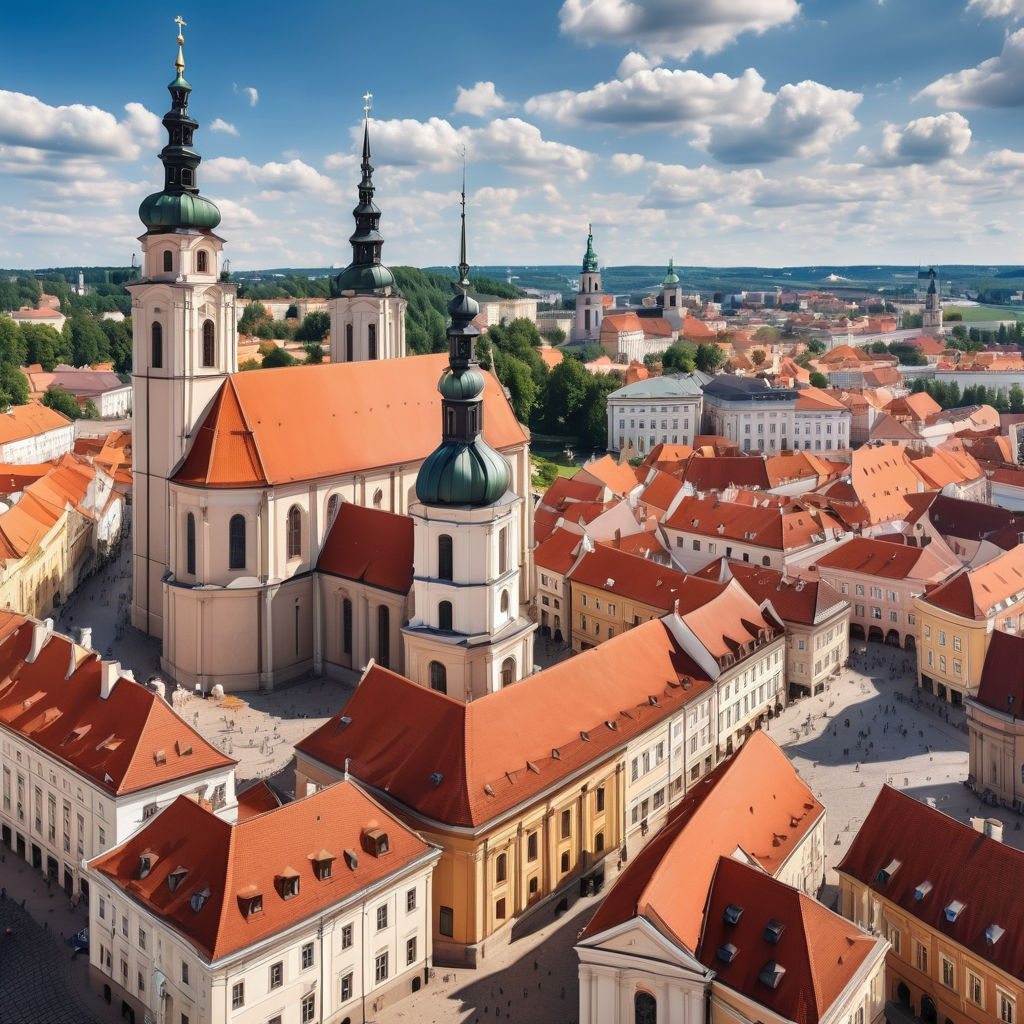Discover Lithuania: A Tapestry of Tradition and Modernity
Exploring Lithuania's Rich Cultural Heritage and Modern Outlook

Introduction to Lithuania
Lithuania, the southernmost of the Baltic States, is located in Northern Europe, bordered by Latvia to the north, Belarus to the east and south, Poland to the south, and Russia (Kaliningrad Oblast) to the southwest, with a western coastline along the Baltic Sea. The capital and largest city, Vilnius, is known for its well-preserved medieval architecture and vibrant cultural scene. Other major cities include Kaunas, a historical and cultural hub, and Klaipėda, an important port city on the Baltic Sea. Lithuania boasts a rich cultural heritage that reflects its complex history, including periods of grand duchy prominence, union with Poland, and incorporation into the Soviet Union. The country's cultural tapestry is woven from elements of traditional Lithuanian folklore, Catholicism, and influences from its historical neighbors. Festivals, music, dance, and art are integral to Lithuanian life, with events like the Song and Dance Festival showcasing the nation's cultural pride.
Cross-national and Cross-cultural Understanding
Lithuanians generally perceive and engage with other cultures with curiosity and openness, particularly since the country's accession to the European Union in 2004. This integration into the broader European community has fostered a more cosmopolitan outlook among the population, especially the younger generation. Significant cultural exchanges occur through educational programs like Erasmus+, which allow Lithuanian students to study abroad and foreign students to experience Lithuania. These programs promote cross-cultural understanding and create networks of international friendships and professional connections. International partnerships also play a vital role. Lithuania actively participates in cultural and academic exchanges, hosting events such as international film festivals, art exhibitions, and music festivals that attract participants and audiences from around the world. These exchanges enhance mutual understanding and showcase Lithuania's cultural heritage on the global stage.
Interactions and Social Dynamics
Interactions between Lithuanians and foreigners are generally positive and characterized by a genuine interest in cultural exchange. Social behaviors in Lithuania are shaped by a blend of traditional values and modern influences. Lithuanians are known for their hospitality, often welcoming guests with warmth and generosity. Communication styles in Lithuania tend to be direct but polite. While Lithuanian is the official language, many Lithuanians, particularly in urban areas and among younger generations, speak English, Russian, and other European languages. This multilingualism facilitates interactions with foreigners and supports a more inclusive environment for cross-cultural communication. Cultural norms emphasize respect, punctuality, and modesty. Social gatherings often revolve around food, with traditional Lithuanian dishes like cepelinai (potato dumplings) and kugelis (potato pudding) being popular. Public behavior is typically reserved, but Lithuanians are friendly and open once initial formalities are observed.
Views on Dating and Relationships
Dating and relationships in Lithuania are influenced by both traditional customs and modern attitudes. Lithuanians generally view dating with foreigners positively, appreciating the opportunity to learn about different cultures and perspectives. However, cultural expectations and traditions can influence these views. In urban areas, dating practices are similar to those in other European cities, with a more liberal approach to relationships. In rural areas, traditional values may hold more sway, with an emphasis on family approval and long-term commitment. Regardless of location, relationships are often approached with seriousness and an eye towards stability and mutual respect.
Marriage and Family
Marrying a foreigner in Lithuania involves navigating both legal and social considerations. Legally, foreign spouses must meet residency and documentation requirements, which can be complex but manageable with proper guidance. Socially, gaining family acceptance is crucial, as family plays a central role in Lithuanian life. Cross-cultural marriages are generally accepted, though they may face challenges related to cultural differences and integration. Families may have concerns about cultural compatibility and the ability of the foreign spouse to adapt to Lithuanian traditions. However, many Lithuanians are open-minded and supportive of cross-cultural unions, recognizing the benefits of cultural diversity. Trends in cross-cultural marriages reflect Lithuania's increasing global connections. Many Lithuanians who have lived or studied abroad bring back diverse cultural influences, enriching their families and communities with new perspectives and traditions.